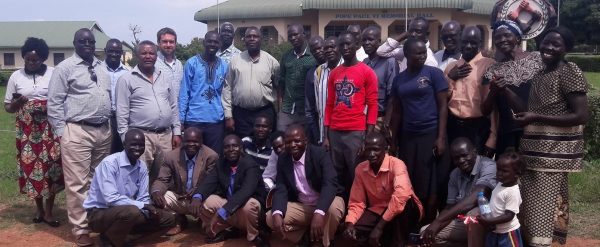Freedom to Lead International® (FTL) recently traveled to work with a group of second generation leaders that are being developed in Adjumani, Uganda through The Garden Project. These Christian leaders are primarily refugees that have fled from Sudan. In light of their war-torn lives, the Sudanese brothers and sisters found FTL’s module on Peacemaking to be especially relevant.
When I returned home, I was reminded that we also need leaders who seek peace.
Is All Conflict Sin?
One of the themes we kept revisiting during our time together was the discussion about whether all conflict is related to sin. To many of us conflict seems always sinful. However, after examining stories and interacting with the early church experiences, we can see that sometimes conflict is simply the result of not having enough resources to go around.
For example, conflict may happen if two people want the only seat left on a plane. The competing desires to wanting that last seat may not be due to sin but rather because of an urgent need to fly out sooner rather than later. So, sometimes conflict comes from circumstance, not from sin. On the other hand, how we handle conflict can lead to sin. Continuing the example of the plane ticket, we can respond in anger with cursing and aggressiveness towards the airline and the other unfortunate ticket holder, or we can try to work the situation out in a way that models Christ.
Conflict in the Early Church
In Acts 6, Luke recorded a conflict that arose from the merger between two distinct people groups: the Greek Hellenists and the Hebrews. These were two groups of believers from very difficult cultures with very different ideas of how to act in society. They were now trying to live together, united in Christ.
Like many religious communities, the early Christian community expressed their spiritual unity through a communal sharing of food and supplies. However, a complaint arose from the Hellenists because they felt that their widows were being neglected in the distribution of food. Luke never tells us why the Hellenist’s widows were being neglected. Rather than focusing on the dissimilarities between the Hellenists and Hebrews, he shares how the apostles responded to the conflict.
The Apostles Were Peacemakers
The apostles could have handled things much differently than they did. For example, they could have put the blame on the widows or someone else. A statement could have been distributed among the early church that condoned the neglect of the Hellenistic widows. The apostles also had the power to make an arbitrary decision and just choose their preferred seven to manage the distribution of food and be done with it.
Instead, the apostles responded as peacemakers and gave the community the responsibility of appointing seven men to manage the task of distributing food. By delegating the decision to the people, they entrusted the community to choose their own managers. It is not explicitly stated, but the seven names of the men selected were all Greek, suggesting that the community as a whole selected men from the Hellenistic people group.
The apostles not only empowered the community to make a decision, but they empowered some of the people most affected by it, believing these were the people most capable of solving the problem.
The Impact
As a result, the whole community was pleased with the selection of the seven. If the Hellenists were disturbed about an inequality between them and the Hebrews, then giving them charge was a tremendous step forward in equalizing the power between the two groups.
At Pentecost, Luke writes about the many people being added to the group of believers, but he concludes this section by saying that the word of God continued to increase, and the number of disciples multiplied greatly in Jerusalem. It’s fascinating that after this conflict in Acts 6 had been resolved, the church growth was no longer about addition, but about multiplication.

Leave a Reply